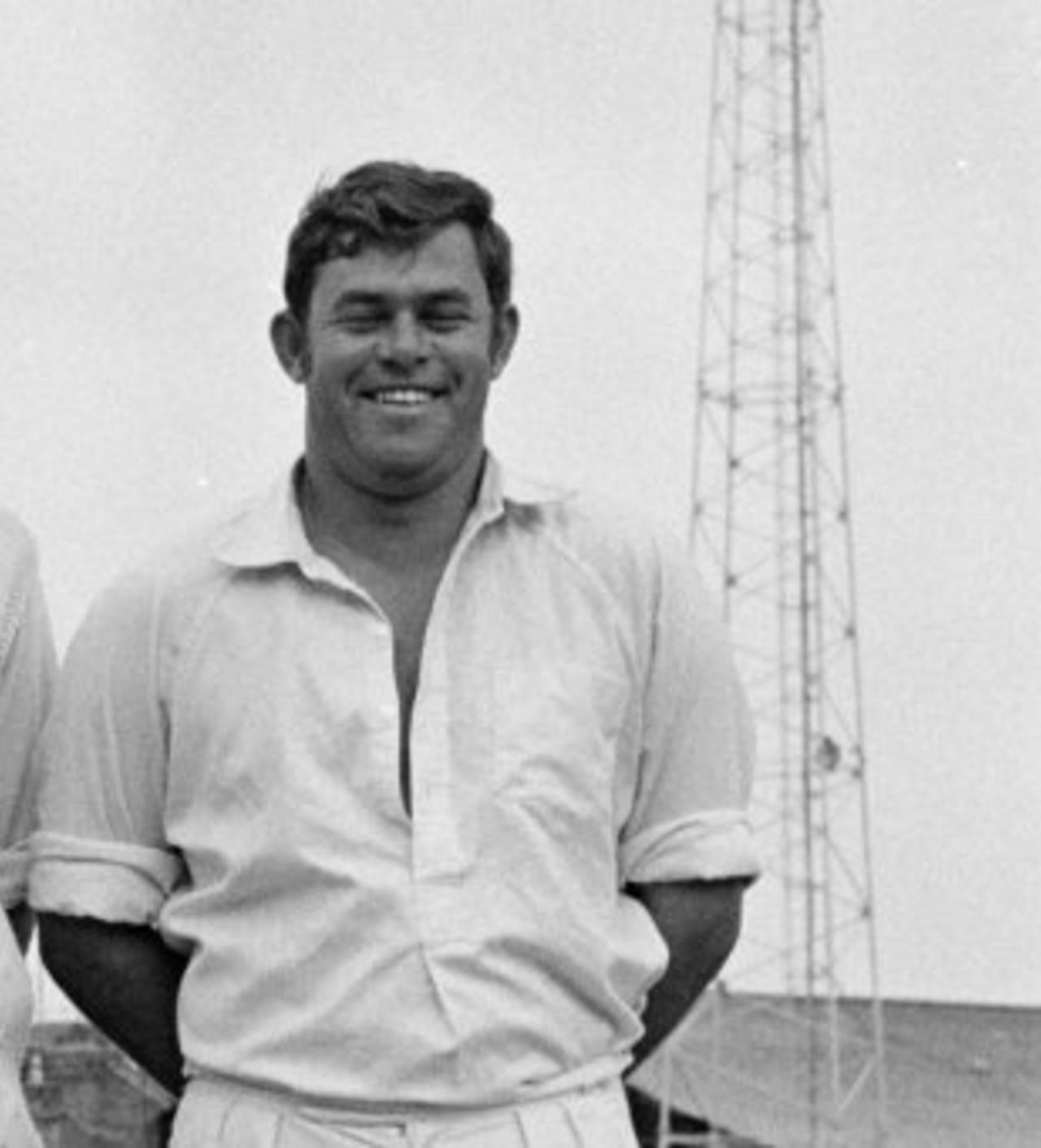The man with the gleam in his eye
For him cricket was a game of passion, instinct and love, and his greatest joy was spotting a talent
Telford Vice
04-Sep-2009

Ackerman: 12,219 first-class runs, and a look on his face that said he couldn't quite believe how much fun he was having • Getty Images
Hylton Ackerman lived a life of stories. He was either telling them or part of them. Sometimes both.
One of his stories involved Sunil Gavaskar, with whom he opened the batting for the Rest of the World XI in Australia in 1971-72 after South Africa were banished from Test cricket. According to Ackerman, Gavaskar said nothing to him before the opening match of the tour, against Victoria. Not a word passed between them as they made the long walk out to the middle together, and for most of their time on the field.
All the while Ackerman, already overawed at his own mere presence at the MCG, never mind at sharing a dressing room with the greatest players of his time, wondered whether Gavaskar was naturally truculent, or simply had nothing to say, or whether he might have been offended to be part of the same team as men who came from a country whose laws declared Indians second-class citizens.
Eventually, as an over ended, Gavaskar beckoned the South African. "I was desperate to know what pearl of wisdom he had waiting for me," Ackerman would say. Alas, wisdom it was not.
"There's something running down my leg," Gavaskar told his breathless batting partner. "I think it's last night's curry."
With that, Gavaskar turned on his heel, mid-pitch, and returned to his end. He said nothing more to Ackerman, who rarely spoke about the century and three half-centuries he scored on that tour. But then, he never did put much store in statistics. For him, cricket was a game of passion, instinct and love, as much as it was about skill, talent and achievements.
To borrow from Neville Cardus, if you needed to look at the scoreboard to know how well a man was playing, then you weren't watching the same game Ackerman was watching. He could feel the quality of a performance in his bones, and he never grew up enough to try and hide showing when he knew. You could judge an innings or a spell of bowling you had not seen by how much it made Ackerman's eyes shine.
For him, details were just details. He would go on about "one-day Tests", and his memory for facts and figures was famously faulty. But he knew a reverse sweep when he saw one, and he detested every one he had to endure. He was prone to lapsing into soliloquies about cricket "in our day", and his private thoughts on Twenty20 are better left unpublished.
To borrow from Cardus, if you needed to look at the scoreboard to know how well a man was playing, then you weren't watching the same game Ackerman was watching
But show Ackerman a young player of genuine promise, and his day was made. Better yet, show him a talented prospect who respected the traditions of the grand old game as Ackerman knew and loved it.
Not that Ackerman wielded his bat as if he was some starched epitome of orthodoxy. Stephen Jones, the former Western Province allrounder, remembers how Ackerman dealt with a delivery of extreme pace that pitched and skimmed towards him, rising no more than an inch off an inferior surface as it did. "He was coming forward to drive it, and when he realised it wasn't going to get above boot height, he simply adjusted everything he needed to and played it straight down the ground for four with the bat perfectly parallel to the ground. It was the finest cricket stroke I have ever seen," Jones said.
Ackerman was known to successive generations of South Africans as a player, a coach, and a television commentator. Robin Jackman knew him in all of those roles in a friendship that stretched back 37 years. "He was never afraid to tell a story against himself. He always had a twinkle in his eye, and he had an amazing passion for the game," Jackman said. "He was an important figure in the development of players like Gary Kirsten, and also of many black players in the rural areas of South Africa."
Ackerman was shut out of the Test arena by the politics of the time. His son HD, whose success he countenanced with pride that glowed strictly inwardly, wasn't. Without fail in commentary stints, senior referred to junior in almost stentorian tones as "HD Ackerman", all formality intended.
Among Ackerman's favourite stories was the one in which he, an unpolished miner's son from the backwater of Springs in the old Transvaal, arrived at Dale College to discover a strange game called cricket. He didn't add that in a few years he was among the best schoolboy batsmen in the country. As Jackman said, "Not many have played in five SA Schools sides."
In his first-class career Ackerman reeled in his 12,219 runs with a look on his face that said he couldn't quite believe how much fun he was having, like a kid ignoring the end-of-break bell to take another crack at hitting one over the hedge.
Those who shared a media box with Ackerman were bequeathed a treasury of tales warmly told by a favourite uncle. We watched his health deteriorate with growing concern these past few years. We knew the end was coming, and some of us were surprised he was with us this long. Now that the end has come, it has come too soon. So long, Hylton. I will miss you.
Telford Vice is a freelance cricket writer in South Africa